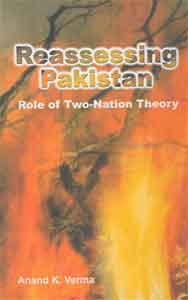The Objectives Resolution had the effect of giving Pakistan a-permanent reorientation towards Islam though it was not said that Pakistan was an Islamic state or that Islam would be the ideology of the state. The reorientation was largely a response to the need to give continuity to the two-nation theory and to emphasise that Islam was the raison-de-etre of Pakistan. It was intended to serve a binding’ function.
Bonding Role for Islam
The binding function was greatly relevant to Pakistan since it was not yet a nation state but was actually a state nation. Stalin had defined a nation as a historically evolved, stable community of language, territory, economic life and psychological make-up manifested in the community of culture.5 The subjective factor of identity also plays a role in defining a nation. Pakistan, at its inception, consisted of ethno linguistic groups, which did not share many of those characteristics, which could identify them as one nation. Pir Pagara was an exponent of Sindhi nationalism whose political objectives for Sindh differed widely from those of Jinnah.
| Editor’s Pick |
The Pakhtoon and Baluch tribes had long enjoyed a sovereign or quasi-sovereign status in the British as well as pre British period. The Punjabis had not been converted into supporters of the Pakistan idea until the close of the 1940s. The Bengalis were manifestly different from the people who lived in the western segment of what became Pakistan. Religion was the only connecting link. There was, ‘thus, a compulsive need to use Islam to define Pakistan as a nation.
Islam never became an issue in popular perception. The people of Pakistan, by and large, displayed secular tendencies, differentiating between the roles of religion in personal life and political life.
The orthodox and religious groups like the JI interpreted the Objectives Resolution as sanctifying Islam to be the ideology of Pakistan but there has been no official document till today, making a proclamation to this effect. The anomaly can be explained in several ways.
Firstly, Islam means different things to different people in the absence of consensus on interpretation of its texts and history. Islam itself creates neither ecclesiastical authority nor accords to the class of Ullemas a defining role. Shias and Sunnis differ widely among themselves and Sunni doctrines are variously applied by the four independent schools that have sprouted from them. Declaration of Qadianis as a non-Muslim minority was an eloquent commentary on the spirit of tolerance of the self-appointed guardians of Islam in Pakistan.
Secondly, Islam never became an issue in popular perception. The people of Pakistan, by and large, displayed secular tendencies, differentiating between the roles of religion in personal life and political life. In elections, the results always showed that the religious groups exist in the margins of political consciousness of the people.
Thirdly, certain Islamic concepts, while integral to Islam, cannot be reconciled with the evolving modern universally accepted principles of relationship between state, polity and governance.
 The classical Islamic thought insists that all authority over mankind belongs to Allah, which implies that people’s sovereignty as enshrined in a constitution, cannot be the source of the supreme law of the country. This abstract notion of Allah’s sovereignty offers no practical way of determining what he favours or disfavours in terms of institutions and policies and, therefore, whether something is Islamic or non Islamic becomes only an interpretative exercise.The Ullema class in Pakistan from its early days have capitalised on these grey shades and unleashed campaigns that have succeeded in setting Pakistan on a continually widening path of Islamisation.
The classical Islamic thought insists that all authority over mankind belongs to Allah, which implies that people’s sovereignty as enshrined in a constitution, cannot be the source of the supreme law of the country. This abstract notion of Allah’s sovereignty offers no practical way of determining what he favours or disfavours in terms of institutions and policies and, therefore, whether something is Islamic or non Islamic becomes only an interpretative exercise.The Ullema class in Pakistan from its early days have capitalised on these grey shades and unleashed campaigns that have succeeded in setting Pakistan on a continually widening path of Islamisation.
The influence the religious groups were able to wield was far in excess of their political support in the country. They could do so because the ruling military, bureaucratic and feudal establishment in the country recognised early that with Islamic groups on their side, they would be able to dominate governance of the country. Islam, therefore, became a pillar of the state, the preservation of one being synonymous with the preservation of the other.
The influence the religious groups were able to wield was far in excess of their political support in the country.
This also gave a continuity to the sentiments of those who had been in the vanguard of the movement for Pakistan, and who were now members of the elite of the new nation, who had felt the non Muslims to be a threat to their interests then and who now believed that such threats had assumed even more dangerous overtones after Pakistan’s formation!




